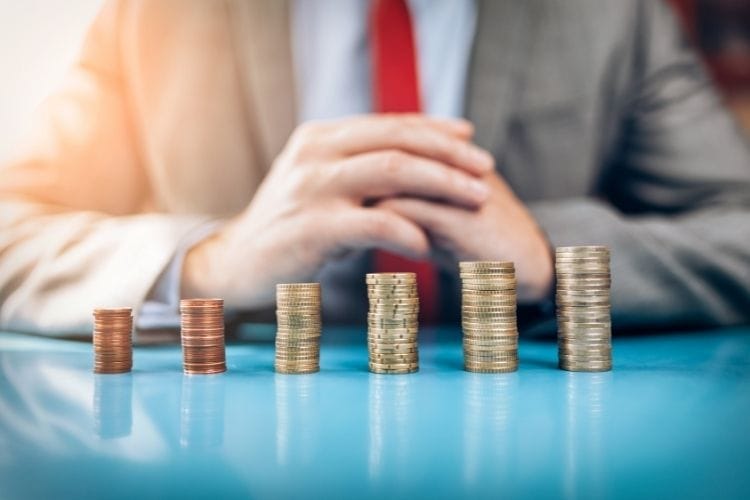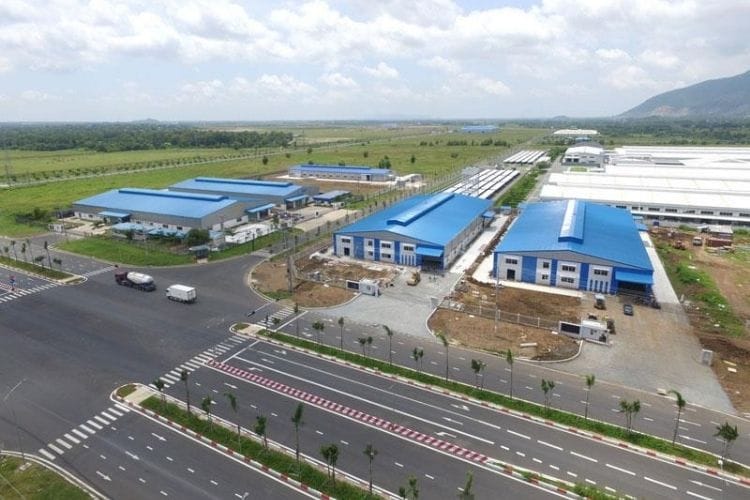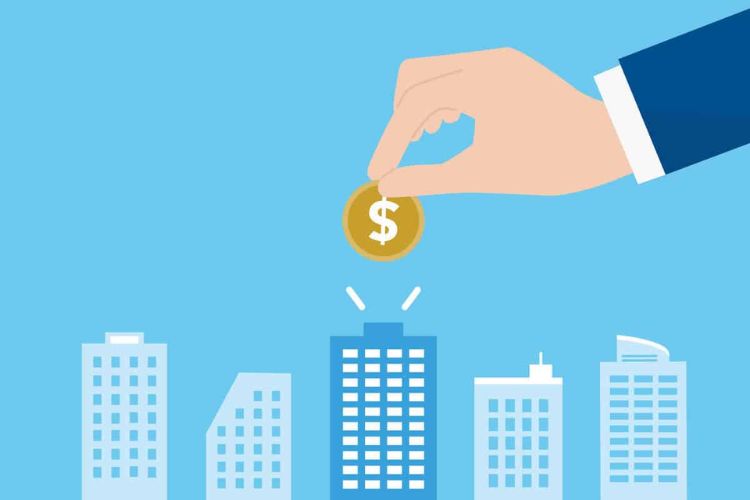Our country is increasingly integrating and developing strongly with the world economy. Especially since joining the WTO, many trade and investment promotion activities have attracted large investments from foreign countries. Vietnam has gradually become a favorite destination for foreign investors and has now received a huge amount of direct investment from abroad.
As of March 20, 2021, the total newly registered capital, adjustments and capital contributions and share purchases of foreign investors reached 10.13 billion USD, an increase of 18.5% over the same period in 2020. To create favorable for investment activities in Vietnam, especially in the context of the raging COVID-19 pandemic, leading to the need for timely and appropriate policies to receive foreign direct investment capital, especially in the legislative field. The Party and State have made timely decisions to create favorable conditions for foreign investors to invest in Vietnam. It is necessary to anticipate the end of the COVID-19 epidemic to restore and develop the economy strongly. furthermore. For that purpose, the authors raise a number of issues in the article “Legal regulations on foreign investment capital in Vietnam” on the basis of the principles of investment law in Vietnam. Nam is current and contributes some ideas and solutions to improve it.
1. Overview of foreign investment capital in Vietnam
1.1. Concept of foreign investment capital in Vietnam
Capital is money, assets, and property rights that are valued into money that can be used in business.
The ability to be used in business is the basic criterion to evaluate money, assets, and property rights that can be valued into money and have value as capital. Money must accumulate to a certain level before it can be used in business as capital. For assets that only have pure value and use value but cannot be converted into money and used in business , they do not have capital value. As for property rights, if they cannot be converted into cash for business planning, they cannot be used for investment, so they are not considered capital. Capital is the premise for carrying out investment activities.
To understand the concept of foreign investment capital, we need to understand investment capital. The term “investment” can be understood as synonymous with “spending” and “sacrifice”. From there, “investment” can be considered as spending, sacrificing something in the present (money, labor, material wealth , intelligence) to achieve beneficial results for people. future investment.
Investment capital is money accumulated by society, production, business and service units, people’s savings and capital mobilized from different sources such as joint ventures, partnerships or foreign sponsorship. … to: reproduce fixed assets to maintain the operation of existing technical facilities, to innovate and supplement technical facilities for the economy and industries. or service business establishments, as well as carry out the necessary expenses to facilitate the start of operation of newly added or newly renovated technical facilities .
Currently, the concept of investment capital in many places is still quite vague and many people do not fully understand its meaning. However, for enterprises with foreign investment capital, the phrase “investment capital” will be used very commonly.
Foreign investment capital is a form of long-term investment by individuals or organizations in another country by establishing factories and business establishments. The aim is to achieve long-term benefits and take over the management of this business.
Foreign investment capital in Vietnam is the investment of capital in the form of cash or assets by investors without Vietnamese nationality to carry out one or several production and business activities in a certain period of time. and in certain specific locations, under certain forms of investment.
1.2. Characteristics of foreign investment capital in Vietnam
According to Vietnamese law, investors are allowed to contribute capital in money and other assets such as machinery, equipment, etc. for business investment activities and are legal assets, not nationalized or confiscated by administrative measures. The purpose of foreign investors bringing capital into Vietnam is to invest, expand the market and make profits. When investors invest in the host country, competition increases compared to domestic competitors. Therefore, investors will look for new markets through investing abroad. An investor here can be understood as an organization or an independent individual, investing in establishing foreign-invested enterprises or contributing capital to existing companies in Vietnam. The most noticeable characteristic of foreign investors is their very large capital source.
In a market economy, capital is also considered a special commodity due to the separation between ownership and use rights. Therefore, capital is mobilized in many ways: issuing stocks and bonds; business credit; Bank loans… are of great interest to foreign investors and are used flexibly.
Capital must be attached to the owner, each dollar of capital must be attached to a certain owner. In a market economy, there cannot be ownerless capital. It is also necessary to distinguish the right to use from the right to own capital. Depending on the form of investment, the owner of capital may be identical to the user of capital.
Capital is not only expressed in terms of tangible assets, but also in intangible assets such as: patent copyrights, technological know-how, trademarks… Along with the development of the economy The market economy, the advancement of science and technology, and intangible assets play an increasingly important role, creating profitability for foreign investors.
1.3. Classification of foreign investment capital in Vietnam
Based on the concept of investment capital prescribed in Clause 23, Article 3 of the Investment Law 2020, we can clearly see that the investment capital of domestic enterprises in general and foreign enterprises in particular is not simply in currency but It can be other assets such as equipment, production lines, advanced technology, etc. Thus, it is obvious that foreign investors are allowed to contribute capital in other assets or currency, as long as they are assets. legal property, not nationalized or confiscated by administrative measures. From this legal concept, we can divide foreign investment capital in Vietnam into two types: “currency” and “other assets”. Each type of investment capital will have its own characteristics as follows:
Firstly , for foreign investment capital in “Currency”. First we need to understand that Currency is the common equivalent with the highest liquidity used to exchange and compare the value of goods and services. Issued by the State, the value of which is guaranteed by other assets such as gold, precious metals, bonds, foreign currencies or guaranteed by an encryption algorithm on a computer network such as Bitcoin, Ethereum, etc. Each country Each country will have different currencies with different denominations and values. From this concept of currency, we can easily see that the investment capital of a foreign investor investing in Vietnam in currency is essentially what a foreign organization or individual wants to use. The money they have from the host country is invested in an organization or individual in Vietnam to seek profits, as well as achieve other goals set by the business such as expanding the market. ,…
The fact that foreign investors bring foreign currency capital into Vietnam for investment not only helps bring profits to those foreign investors but also helps Vietnam increase its foreign currency reserves (increase foreign reserves). repentance). These foreign currency reserves are important to a country’s economic prosperity. Without adequate reserves, an economy could stagnate and a country would likely be unable to pay for key imports, such as crude oil, or service foreign debt.
Second , for foreign investment capital in other assets (technology transfer, equipment, advanced techniques, etc.), there are currently many domestic and foreign businesses that want to cooperate with each other through form of business cooperation contract, signed between investors for business cooperation, profit sharing, and product division without establishing a legal entity. According to this form of investment, a foreign investor will provide brands, intellectual property rights, technology, skills, processes, etc. for domestic enterprises to carry out production and business. These technologies, processes, etc. of foreign investors will be converted into the proportion of capital contributed or capital invested in domestically cooperated enterprises. From there, divide profits and divide products. So instead of foreign investors investing capital in “Currency”, they can still invest in other types of assets such as technology, engineering, intellectual property rights, brands,… and Investing this capital also brings huge benefits to businesses in particular and Vietnam’s science and technology in general. Because thanks to such cooperation, Vietnam’s science and technology is increasingly improving.

2. Current status and recommendations for improving regulations on foreign investment capital in Vietnam
2.1. Reality
To attract foreign investment capital, Vietnamese law has introduced many investment incentives, including investment incentive industries, investment incentive areas, projects with large capital scale, and projects with investment incentives. in rural areas using local workers, high-tech enterprises, and science and technology enterprises. Among them, industry incentives receive a lot of attention from investors. Industry incentives and special investment incentives are specified in Appendix I of Decree No. 118/2015/ND-CP. In general, this list recognizes many industries with potential for development and bringing great benefits not only to society but also to investors themselves, such as high technology, information technology, agriculture. … These are also areas where the State encourages investment and development.
In the context of integration and development, countries are constantly changing and investing in technological innovation, especially advanced technologies to improve competitiveness. Vietnam is no exception to this trend. The Vietnamese Government has policies and strategies to improve efficiency in receiving and applying advanced foreign technology to domestic production; as well as bringing domestic technology into production practices in each industry and field is considered a key step, ensuring rapid and sustainable development. Data have just been announced, as of December 20, 2020, total foreign investment capital in Vietnam, including newly registered capital, adjusted registered capital and value of capital contributions and share purchases of investors. Foreign investment reached 28.5 billion USD, down 25% compared to 2019.
Foreign technology transfer in Vietnam, especially high technology from foreign investment, is still limited. A country’s ability to attract investment capital increases when investors are certain of their investment benefits, mainly through the protection of intellectual property rights and the law enforcement system. effective. A country’s intellectual property protection system is one of the factors that influence businesses’ decisions to transfer technology or invest in a country. If the level of patent rights protection in a country increases by 1%, the FDI investment rate will increase by 2.8%. Similarly, if the level of trademark and copyright protection increases by 1%, the FDI investment rate will increase by 3.8 and 6.8%, respectively.
Technology acquisition and production and business in enterprises are currently seasonal and intermittent; Equipment, facilities, and premises to acquire and deploy technology, production and business in enterprises are still very lacking, outdated and inconsistent, which greatly limits operations. deployment, especially participating in deploying new technology.
Enterprises must focus on absorbing science and technology and applying technology to production and business to improve technological capacity to create high quality products that can stand firm and compete in the market in the future. domestic and international. Recently, the State Bank has proactively and actively developed and promulgated decrees and circulars to create a synchronous and transparent legal framework on foreign exchange management to guide foreign investment activities. into Vietnam, contributing to improving the investment and business environment and promoting economic growth. In particular, since joining the WTO, foreign exchange management policies have been applied relatively openly, in order to prioritize strongly attracting foreign investment capital flows into Vietnam.
2.2. Proposal to improve regulations on foreign investment capital in Vietnam
Facing the benefits that foreign investment brings, there will also be certain difficulties for today’s existing economy. Therefore, Vietnam also needs to have synchronous solutions to attract investment capital effectively:
Firstly, in order to effectively receive technology transfer from foreign enterprises, it is necessary to focus on evaluating and carefully reviewing each stage in the investment – business cycle of foreign investment. in Vietnam (from investment promotion, licensing appraisal, post-licensing management) to clarify why there are problems at each stage such as imbalance in the ratio of potential investors, licensing Not in accordance with the planning, projects are delayed in implementation (suspended projects), causing environmental pollution, businesses flee, thereby providing solutions for foreign invested businesses to have a roadmap for technology transfer. .
Second, it is necessary to innovate institutions, replacing profit-based incentive policies with efficiency-based incentive policies. It is necessary to review the entire current investment incentive policy framework and re-establish a balance between profit-based incentives with efficiency-based incentives and growth model innovation. Accordingly, it is necessary to transfer the corresponding regulations on incentives from the Investment Law , Land Law to the Tax Law, Customs Law , Technology Transfer Law… with the support of an effective monitoring and evaluation system. . Currently, Vietnam is relying heavily on the policy of limited-term tax exemption, partial tax exemption as well as preferential tax rates and import tax exemption to attract foreign investment.
Third, it is necessary to associate technology transfer activities with improving technological capacity, developing education and training, and promoting the development of the private economic sector to serve the implementation of development goals. economic, social, scientific and technological development. Supporting businesses in accessing technology needs to be done synchronously, compatiblely and with a roadmap, consistent with economic, scientific and technological development goals.
Fourth, diversify investment forms, allow the establishment of capital management companies, and establish an open economic model. It is necessary to have policies and create conditions for the private economic sector to enter into joint ventures with foreign countries; Accelerate the pilot equitization of foreign-invested enterprises, summarize experience and then proceed to equitize foreign-invested enterprises to be able to mobilize many sources of capital with all types of scales. capital for economic development.





